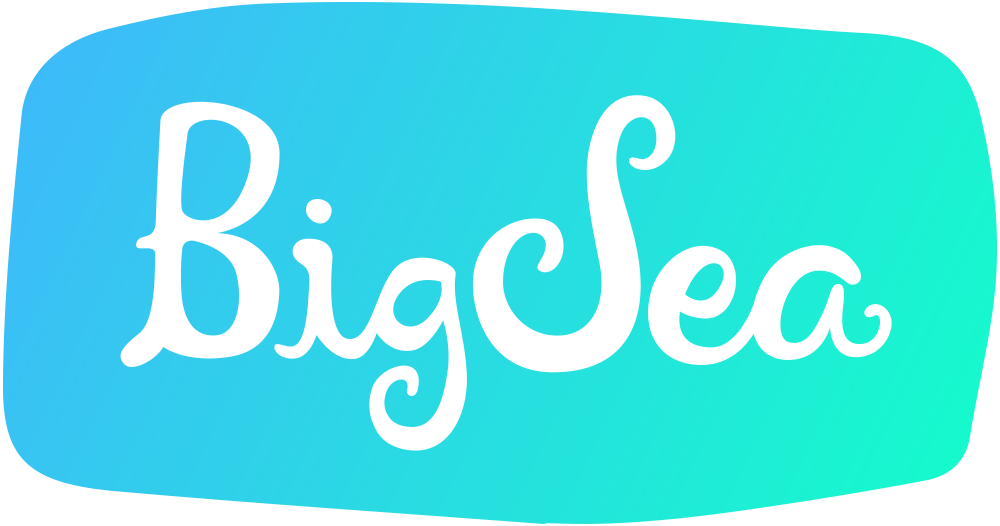Episode 023
Tim Moore, Diamond View Studios
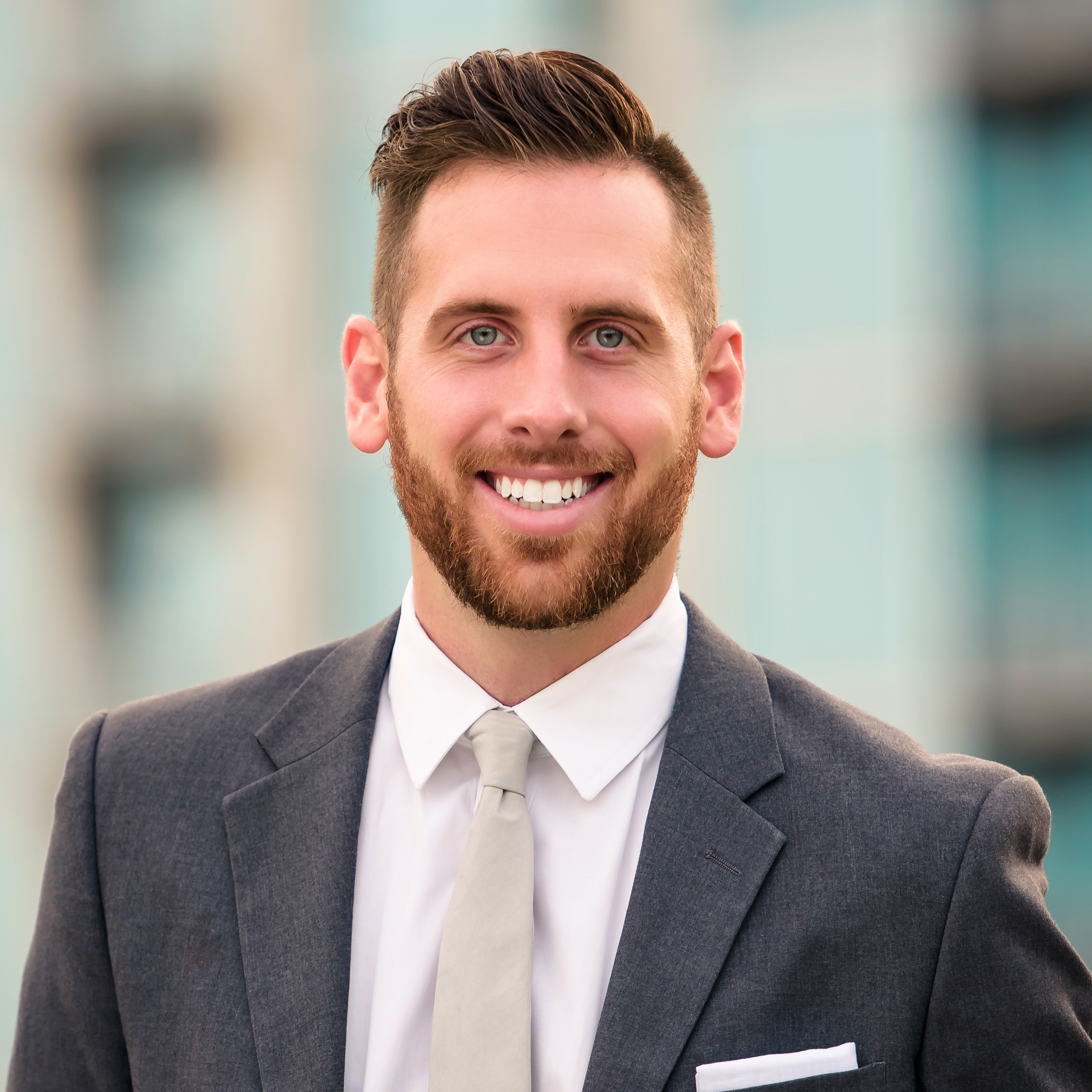
Local Emmy award-winning video producer Tim Moore talks humble beginnings, growing a business in Tampa Bay and the mindset that's brought his success.
On this episode of SPx, host Ashley Ryneska sits down with Tim Moore, CEO of the Emmy award-winning video production company, Diamond View Studios. They tackle everything from Moore's inescapable "millennial" title to the ways in which viewer values and attention span have changed the advertising industry. From its humble start in his parents' house 10 years ago (in the midst of the Great Recession) to the critically-acclaimed 22-employee business it is today, Diamond View Studios is riding a well-earned upward trajectory. Tim shares the means of his success with our listeners, including his unconventional methods of growth, passion, and the mindset that got him to where he is today.
Key Insights
- Diamond View Studios is a video production company based in Tampa Bay, which was started in Tim Moore's parents' house.
- In the last 10 years, Diamond View Studios has grown from a tiny one-man production in his parent's house to a thriving small business with 22 employees, working with national brands such as Purina, Gatorade, the Atlanta Braves, and many others.
- Locally, the company works with the St. Petersburg Group, Tampa EDC, WellCare, and USF, along with many others.
- Diamond View Studios grew out of an experience Moore had as a teenager, when he went on a missions trip and made a video to document the experience. He found this medium to be surprisingly powerful, garnering emotional responses from his fellow attendees.
- Starting his business right on the verge of the Great Recession, Moore was seeing video and advertising firms down-sizing heavily, but he saw opportunity. "Amidst the economic climate, there was this space for me to grow. And so, it took about three, almost four years til I really started to scale."
- Diamond View Studios found an unconventional way to grow and scale. They began working with non-profits early on, which were always looking for affordable video production.
- What they found propelled them their upward trajectory: "On the boards of non-profits are very influential people, people that wanna help the community, that often times have businesses and intentions to grow. So, when they would get exposed to our work, they would call us up and say, ‘Hey, you know, you did a great job for this non-profit. I would really like you to help us out here.’"
- As Diamond View Studios began to scale, they moved from Moore's parents' house to a strip mall, and a few other offices, to their current location, a three-story brick building on Skipper and Bearss Avenue in Tampa. "We would pass by this building every day...We would often times point at it and be like, ‘One day we’re gonna move into that place.’ But it was always more of a joke."
- The building sat vacant for 5 years and Diamond View Studios bought it in foreclosure. When they moved in, the first floor was entirely dirt. They renovated it from the ground up and were awarded coolest office space in Tampa Bay by the Tampa Bay Business Journal.
- The office even has a trap door that leads to the conference room - where the most creative work happens - creative ideation.
- "Can we get three people in the room and come up with great ideas? Can we get five people? Can we get ten people? And I think that’s when you get to the point that it surpasses just a media company, and it’s now a solutions company."
- Moore says that he's seen the advertising industry change drastically since he began. Rather than telling people about their product, Moore believes companies should tell their story.
- "The big brands have realized this, they got it. And so now it’s just taking it down to some of the smaller medium business levels that don’t put too much emphasis on your product and lose your story."
- Moore argues that good advertising is now run by corporate responsibility, not PR or marketing. "The big corporations realize now that the world is not run by the things that they give to the marketplace, but the things they do for the marketplace."
- He used the examples of the Budweiser plant in Atlanta - which bottled and gave away water in Budweiser cans during hurricane relief efforts - to elaborate on this point.
- Attention: "The attention span right now on the Internet is roughly four seconds. So, you have four seconds to show someone that you’re worth watching for another 30 seconds."
- Short form or long form media? "I think that there needs to be a mix, they need to create short form that’s not interruptive, but also long form stories that they know people can really engage and share and love to watch"
- Millennial has been an inescapable title for Moore. He was recently recruited to take part in a panel at the inaugural Millennial Forum in Tampa, of which he says, "The Forum was such a great experience for me, because we got to show the world that Millennials are not entitled. I think that’s something that needed be debunked."
- The benefits of growing your business in Tampa Bay? You swim in the same pond as the big fish: "I think a lot of people don’t realize that it’s less about your net worth and more about your network."
- Moore's moment of epiphany? Closing up shop after a long night of editing to perfection. "It's a Thursday at four a.m., there’s not one person on the street...And I realize right at that moment that there’s no one out here working like we’re working. And the reason why is they don’t want it like we want it."
"When you first start a video business you think your greatest assets are your equipment, and then you realize wow, it’s really the talent. But we’ve now come to realize our greatest asset is ideation."
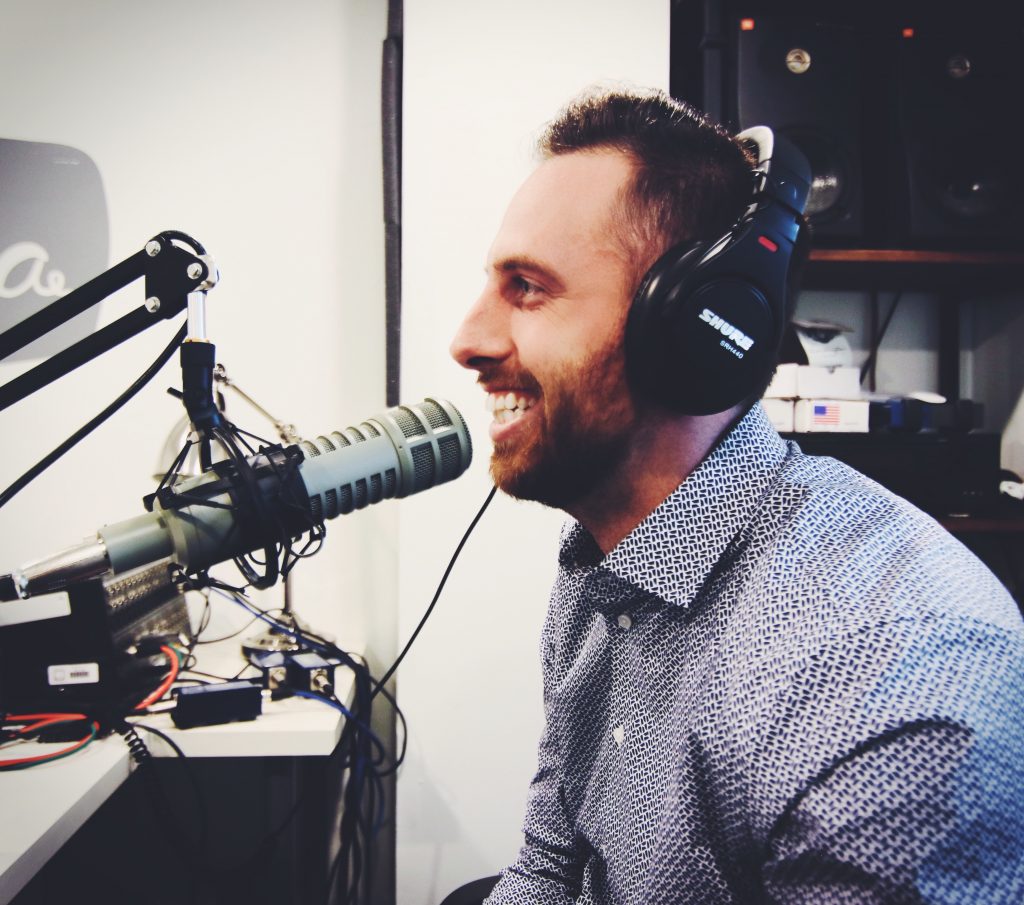
From its humble start in 2007, Diamond View Studios has focused on one thing – story first. This philosophy, telling the story behind the brand over the product itself has proven a fruitful one. The nationally acclaimed production company calls some of the largest local and national brands its partners, including Purina, Gatorade, and the Atlanta Braves, among many others. As an up-and-coming business owned and run by millennials, Diamond View Studios has earned accolades from the Tampa Bay Business Journal for “2016 Coolest workplace in Tampa Bay”. But the primary purpose of their workspace is less about being “cool” and more about fostering authentic creativity and ideation for stories like the one below – that garnered Diamond View Studios an Emmy.
"When you find the cause behind the product, now you can relate to customers at a much deeper level, because you’re talking about values. And millennials don’t care what you do, they care why you do it."
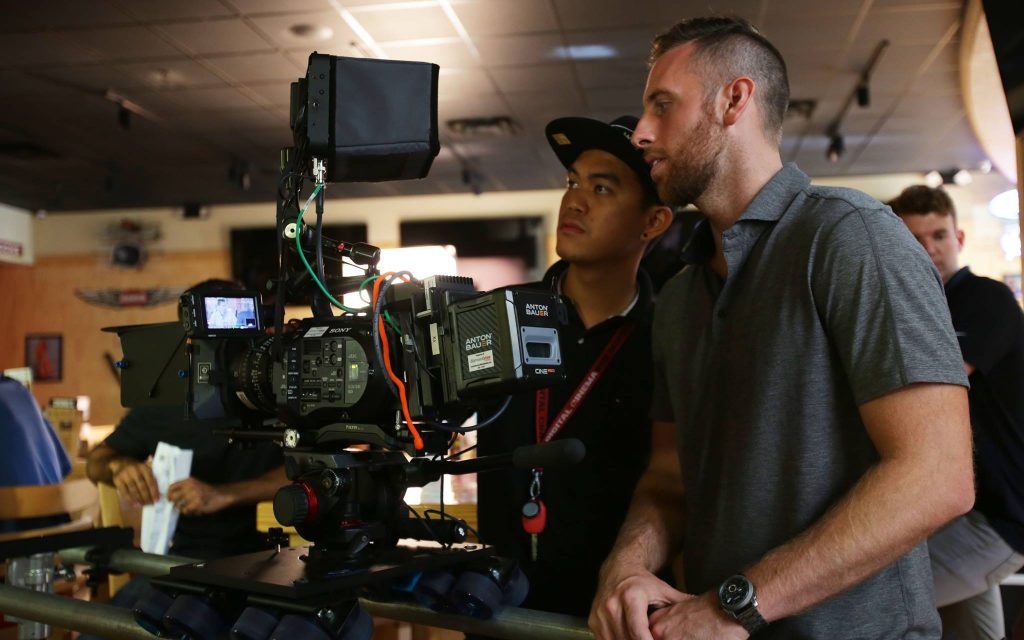
Table of Contents
(0:00 – 2:48) Introduction
(2:48 – 4:52) The Beginning
(4:52 – 7:38) Starting a Business Amidst the Great Recession
(7:38 – 9:25) Diamond View in the Present Day
(9:25 – 10:05) User Experience in Diamond View Studios
(10:05 – 11:09) Conceptual Process
(11:09 – 14:43) Identity and Brand Identity
(14:43 – 18:08) Taking Clients to the Next Level
(18:08 – 20:26) Representing the Millennials Generation
(20:26 – 22:22) Conclusion
Full Transcript:
Ashley: Do you have a mantra, or a theme song or anything that you go to when you’re about to do…?
Tim: There is this line from a Drake song that it talks about going zero to 100 real quick.
Ashley: What was it, ‘Hotline Bling’?
Tim: No, it wasn’t that one. But I feel like a lot of things I go zero to 100 real quick.
Ashley: You’re also working 24/7, and I will have the audience know that I was coordinating time with you and she offered me a 4 am slot. So, what’s the madness of your life?
Tim: I like to meet at 4 am, because then I feel like the person’s in on it, and they get the game. I guess I do work on some occasions, but mostly I’m playing.
Ashley: Yeah?
Tim: Yeah.
Ashley: What do you do to play?
Tim: Video. Right now that’s a big treat for me.
Ashley: Video in terms of your line of work?
Tim: Yeah.
Ashley: Oh, good, well then this is a good introduction way.
Tim: Yeah.
Ashley: So SPx welcomes Tim Moore, the CEO of Diamond View Studios, a video production firm based in Tampa. But you have really a regional reach on the way I understand it, plenty of clients in St. Petersburg, plenty of clients in the nation. Just to orient our listeners to the work that you’ve done and maybe your portfolio, talk to me about some of the bigger clients that are on your raster right now.
Tim: Yeah, so we’ve got a bunch of great clients that we work with. Awesome opportunities to tell stories all across the U.S. One of my favorite now is the Atlanta Braves. Anthony, our main sales guy at Diamond View, helped get them about six-seven months ago, and it’s been an awesome journey working with them, making some creative stuff. But here locally we work with Tampa EDC, we work with WellCare and USF.
Ashley: Some national brands under your belt.
Tim: Yeah, so we worked with Gatorade, Purina, a number of national brands as well.
Ashley: And most recently, and how the St. Petersburg Group came to join forces with Diamond View Studios, one of our inaugural projects was the essential rebranding of the St. Pete Economic Development Corporation. And part of that was a website overhaul with Big Sea taking a lead on that, and then we had Intrinio featured in that spot, we had the Station House, we had Penny Hoarder’s and other small businesses in one day of filming, and your crew was all over St. Petersburg, capturing them and their vision for our city. So awesome to join forces in that way. And so, before we get started into your business, and now you’re celebrating about ten years with Diamond View, I want to take it back to the beginning and really understand a little bit more.
Tim: The big turning point in my life, I was about 13-14 years old and I went on a mission’s trip, and the goal of the mission’s trip for me was to take this small VHS camera, and I was gonna record what went on and make a little story out of it. So, after I’d gotten back, and I created a little video, my first video I ever made, I shared it with some of the team and I saw people cry. And I realized right then, I was like, ‘Wow, this is such a powerful medium.’ Stories are the fabric of understanding, so they give evidence to all the patterns of life. If you can tell a great story, you can connect with people on such a deep level. And I saw that as a kid, and when I found out that day that that was my passion, I couldn’t run away from it, I couldn’t stop it, so I just pursued it.
Ashley: So, following the early ages, your teen years in moving into before you started your own business, I think there is a story of you and your mom essentially answering the front door and thinking that it’s a total stranger, and in fact it was a client of yours. How old were you when that happened?
Tim: So, you gotta understand, I graduated in 2007, and that’s the same year I started my business. So, at that point in time I couldn’t afford a video camera, but I started a video business with the idea that someday I would, and I would start editing in the mean time on the computer. So, my first years, first two years in fact, I would have clients come over my house, which is my parents’ house, and they would come to my bedroom in the back, and underneath my bunk bed I had a little edit suite. And this one particular day I had a gentleman over, this tall older gentleman, and my mom didn’t know that he was in the house, so he was waiting in the kitchen and she came over, she was over by my bedroom, she goes, ‘Tim, someone’s broken in. And it’s an older gentleman, bald-headed, he’s in our kitchen.’ And I’m like, ‘Mom, don’t worry, that’s my client.’ It was funny at the time to think that this wasn’t a real business to start with, this was a hobby that I had people literally coming over my parents’ house to help make videos for. So, to see it evolve in what it is today, I think it’s just cool.
Ashley: So, 2007 it was the essential genesis of Diamond View Studios. You had just graduated from school, you were taking odd, yet interesting client work, and building your network from there. Talk to me about starting a business right before or amidst the great recession.
Tim: Well, at the time we didn’t quite know how bad it was gonna be, so the end of 2007, beginning of 2008, and I was optimistic, excited. I was starting a business, and even though I didn’t know the workings of it, it felt like I went to work each day and got to play. So, I felt like I had a major advantage in that. But what I came to realize was that at this same point in time, many businesses that were in the video and advertising industry were downsizing, if not going out of business. And so, it was a troubling time, it was difficult to get work. But as I look at it in hindsight, I realize that was probably my biggest opportunity, was that amidst the economic climate, there was this space for me to grow. And so, it took about three, almost four years til I really started to scale. But looking back I wouldn’t trade that for the world, it was a difficult time for a lot of people, but for me it became an opportunity to really grow.
Ashley: And certainly, you’ve grown over the years.
Tim: Yeah.
Ashley: When you think about starting a new business, especially so young, what was your approach to your infrastructure, where you were going to plant roots and grow, how you were going to hire?
Tim: We moved into a small office, it was like 300 square feet on the corner of a strip mall in Florida and Fletcher. So, if you’re familiar with that area, this is not a place a video production company would be, it’s nail salons and massage therapy and all of these things. And we were here on this corner, but excited to be there and trying to make things happen.
Ashley: And what was your marketing strategy to start to recruit new clients?
Tim: There was never a strategy. So, the idea was always fire, aim, ready. We never sat back and planned, we would market test right away. Knocking on doors, picking up the phone and calling. But I found out really with video, because it’s so visual, people all they need to do is see it. So, if I could ever get it in front of someone, they would realize the style or craft that we had. So, I’ll tell you the thing that really propelled us into growth was we began working with non-profits early on, and the reason why it was because non-profits are always looking for someone to do video on the cheap. And so, we were like, ‘Hey, we fit that mold well.’ We would do it sometimes non even at any cost, we were just helping them out for free. What I found out was on the boards of non-profits are very influential people, people that wanna help the community, that often times have businesses and intentions to grow. So, when they would get exposed to our work, they would call us up and say, ‘Hey, you know, you did a great job for this non-profit. I would really like you to help us out here.’ So that was I would say much of our first couple of years clientele came from doing non-profit videos that turned into profit work.
Ashley: So, bringing it to present day Diamond View, where are you now with employee count?
Tim: We have 22 employees.
Ashley: And you’re located—now you’re out of the strip mall.
Tim: Yeah, we’re not too far away from it, though. Actually, we’re only two miles on the street from where we first started.
Ashley: So, talk to me about the epicenter of video production in Tampa, what you’ve created from an office perspective.
Tim: Well, we got a unique story. So, John and I, he’s my business partner at Diamond View, we lived about a mile from the office. We went to USF together, when I got the first office he began working there with me together, and we would pass by this building every day, this three-story brick building on the corner of Skipper and Bearss Avenue. And we would often times point at it and be like, ‘One day we’re gonna move into that place.’ But it was always more of a joke. So, it sat vacant for five years, and I really think it was sitting there waiting for us. So, as we began to scale in another office, we’ve moved office a couple of times as we grew, and it was still there, sitting on that corner, every day we would drive by it. So, when we got to the position of you know, we need to grow into something bigger than we have now, that was the first place we looked. So, we bought this as a foreclosure. The first floor was all dirt when we got it, and we saw that as an opportunity. Because the studio we wanted to develop was an open layout, so we said, ‘Alright, perfect, we’re gonna put that on the first floor. On the second floor is all post-production.’ It’s been a fun experience changing it over. And that’s one thing about the creative you realize, is that you’re never satisfied with where you’re at, you’ll always have that thing in the back of your mind saying, ‘This can be a little bit better.’ So, if you ask anyone around the office, it’s in a constant state of evolution.
Ashley: Didn’t you receive recognition, press recognition, for your design?
Tim: Yeah.
Ashley: So, you’re on the right track.
Tim: Yeah. We got awarded the coolest office space in Tampa Bay by the Tampa Bay Business Journal. And it’s cool seeing that come to life, because we bought it as a foreclosure, dirt floor.
Ashley: So, in present day Diamond View I have a secret side passion, maybe not so secret, within videography. I have worked with different production firms in New York and the West Coast and South Florida. I had the opportunity to connect with Diamond View several years back. And just to give the audience an appreciation for the user experience, walking into Diamond View Studios you turn to the right and there’s a case, presumably a static case of trophies. But then if you actually pull on one there’s a lever that opens a door, and really a gateway to a magical universe. Can you share that?
Tim: So, yeah, we do have a secret door right when you walk in. It looks like a bookshelf of trophies, but when you pass through it you realize that what’s behind the door is even more important.
Ashley: I would assume that the conceptual process and the editing process with video work is arguably the harder aspect of the business and you will go through days and days of iterations and of pivots, and really the pervasive sense of resilience that your creators have as well, and being malleable through that process. Is that something you foster in your culture?
Tim: Yeah, I think it’s something that’s been developed over the years. We’ve realized, when you first start a video business you think your greatest assets are your equipment, and then you realize wow, it’s really the talent. But we’ve now come to realize our greatest asset is ideation. Can we get three people in the room and come up with great ideas? Can we get five people? Can we get ten people? And I think that’s when you get to the point that it surpasses just a media company, and it’s now a solutions company. People are coming to us to win bids like the Super bowl, to have major companies in town, like Amazon. So, we feel like there’s this sense of responsibility on our shoulders to create ideas that are not just canned or boxed ideas, but ideas that are really on the highest spectrum of creativity.
Ashley: And you seem to convey a penchant for identity, or the redefinition of what identity means. And presumably you pursue that same type of realization with your clients. Talk to me about that.
Tim: Yes. So right now, I think there’s a crisis in North America of what people consider their identity. For most people, if you would ask them who are they, they would give you a role that they play. They might start off with their occupation, ‘I’m a doctor, I’m a videographer.’ Or they might go into the role they play in their family, ‘I’m a father, I’m a brother.’ They’ll go into all these temporal roles, but if you realize that the roles you play can change at any moment—if your family leaves you, if your job fires you, you’re no longer that thing, so that can’t be tied to your identity. Your true identity is in what you want, what’s your passion, what drives you. The unwavering thing that you’re always pursuing. And that’s identity. And so, from a corporate level we ask that on all of our clients. It’s like you might make shoes, that’s what you do, that’s the role you play. But what is it that this company is building to pursue? What is the passion of this business? And when you find the cause behind the product, now you can relate to customers at a much deeper level, because you’re talking about values. And millennials don’t care what you do, they care why you do it. So, if tap into why do you do what you do, now you’ve really met them where they are.
Ashley: So, for that shoe retailer that has no idea where to even start to get to the end, do you find that honing in on the origin story as the place to start sometimes?
Tim: I think the authentic story is the one that no one else can share. So, if for a shoe retailer, if they have an origin story that a founder came here overseas, worked hard, built a team, I think that’s a very compelling story. It’s that hard work from rags to riches that everybody loves. And so, if you look at it, the big brands realize this. Nike doesn’t sell shoes, they sell identity. And so, people who wanna be like Michael Jordan, like Lebron James, they buy Nike’s. Not because of the laces, not because of the soles, not because of the colors or any of the styles. They buy it because they want that identity. Same thing is true with a number of big brands, like Airbnb. They don’t sell rooms, they sell adventure. And so, all their advertising gets you around this experience that you can have outside of a hotel room and in someone’s house in some exotic place. So, the big brands have realized this, they got it. And so now it’s just taking it down to some of the smaller medium business levels that don’t put too much emphasis on your product and lose your story.
Ashley: There was an Instagram campaign for Airbnb, I think in 2016. Very tolerance driven, I think that there was a profile of an individual cut right down the middle and two different ethnicities, and really the message wasn’t ‘Come rent your vacation home with us’, it was ‘We stand for this. We stand for diversity, we stand for tolerance, we stand for inclusivity.’ I’m curious what your thoughts are about brands really diverting to cause, and identifying what they believe in and creating from that place.
Tim: So, we’ve seen a big shift in the people that we talk to. We used to talk with advertise, marketing and PR. Now we’re talking with CR, which is corporate responsibility. And the big corporations realize now that the world is not run by the things that they give to the marketplace, but the things they do for the marketplace. So, when a hurricane hits you’ll start to see there’s a Walmart ad saying, ‘We’re out there, we’re gonna help’. Budweiser took a plant in Atlanta Georgia and they bottled water. Hundreds and thousands of bottles of water in Budweiser cans to give as hurricane relief. And so, what these companies are doing, are showing their value set, that not only are we gonna give products to the marketplace, we’re gonna give support to the marketplace when it needs help. And I think that’s a very good long-term decision for them, I think that’s gonna help them out.
Ashley: So, you have an opportunity to illuminate the clients that you’re working with around these really important elements to keep in mind as they’re telling their story, the need to stand for something, the need to extract fundamental aspects of their motivations and passions into their brand identity. Talk to me about some other work that you’re doing with clients to take them to the next level.
Tim: Yeah, we’ve seen a lot of our work shift from TV to the internet, and I think it’s a good thing. What we had for the past 70 years was called interruptive advertising, and that was when you take something that someone’s interested in, you periodically interrupt them with your message and then you resume their content. The problem with this model is, as advertisers have evolved and as the audiences evolved, the audience no longer wants to be interrupted from what they’re interested in. They want you to be what they’re interested in. And so, we’ve seen products evolve around that. If you look at Red Bull, on their website they have no mention of their product. It’s 100% driven by adrenaline sports. They even have a channel on TV now, the Red Bull Network. They have a number of things that are all about the passions of the people who buy their products. And so, they’ve really aligned themselves really well in the marketplace because they realize that instead of interrupting what their audience is interested in, they became what their audience was interested in. And so, this is a really cool time, where now we realize brands can become entertainment. Dr. Pepper has a series called Dr. Pepper Presents, they go around, show awesome basketball, like what And1 was back in the day. Same thing with Degree. Degree created a site called the Adrenalist, and they were doing similar to what Red Bull was. Lego has a feature film right now, and in fact I think they’re on their second feature film. Brands are now realizing the door is open to create entertainment that market is interested in. So, let me tell you what’s happening right now with attention. As you probably know, this is the biggest attention deficit in the history of the modern world. The attention span right now on the Internet is roughly four seconds. So, you have four seconds to show someone that you’re worth watching for another 30 seconds. But on the other end of the spectrum, what we’re realizing is that a lot of people are binge-watching things like Game of Thrones, all kind of Netflix shows. They’re watching it for four hours. So, two ends of the spectrum here. If you show me an interruptive advertisement, I’ll give you maybe four seconds before I click out. If you show me a really good story, I might hang on for an entire season. And so, they’re shifting that model, they’re becoming the branded entertainment that consumers want. If you look at it right now, subscriptions to OTT platforms, which are like Netflix, Amazon, HBO GO, Hulu, those are soaring. People are actually ditching cable and going to streaming, and the reason why is they will pay to not get advertised. They will pay money so that you don’t hit them with a commercial, and it’s like if you know that’s out there, then I don’t wanna be the one interrupting their experience with some 30-second commercial.
Ashley: So, are you advising clients to move to longer form creative? So, instead of doing these 30-second, 15-second spots, to maybe invest in something that’s a little bit more substantial?
Tim: I think the strategy is twofold. Right now, the best performing videos on YouTube as far as the ads go are 6 second ads. So, there’s a short spectrum for mobile, and then there’s a long spectrum for people who are consuming on a computer or a TV. So, I think that there needs to be a mix, they need to create short form that’s not interruptive, but also long form stories that they know people can really engage and share and love to watch.
Ashley: I’ve been hard pressed to find anything written about you that doesn’t have the word ‘Millennial’ in front of your title, and in fact you were recently recruited to serve on a very elite panel at the inaugural Millennial Forum in Tampa this past summer. And it’s interesting, I’m curious as to your experience of being thrusted into this privilege, and being an expectation being called to locally represent an entire generation.
Tim: Well, I think the Forum was such a great experience for me, because we got to show the world that Millennials are not entitled. I think that’s something that needed be debunked as we sat on stage with all these great people, Caesar Hernandez, Roberto Torrez, Andrew Michota. These are guys that really, I wake up every day and get to work, and I feel like being in that company, it just goes to show to entitlement has been more of a title put on us than one that we’ve earned. I have one prayer I have, every day. I wake up and my prayer is this: “God, bless me according to my effort. Not bless me based on what I want, what I desire, bless me according to my effort. Because I believe that you shouldn’t get anything you didn’t earn. You shouldn’t have anything you didn’t work for, and you shouldn’t just inherit something.”
Ashley: You were talking about opportunity, and Tampa, as you identified, was really a small big city, or a big small city. And you stated that we are essentially one degree away from an individual that could change our entire trajectory. Tell me what you meant by that.
Tim: I think the winners in this market are the ones who realize that opportunity is sitting right next to them. Every day at every coffee shop, in your place of work, where you go to school. The people in your network are gonna be so impactful to the outcome of your career. And I think a lot of people don’t realize that it’s less about your net worth and more about your network. Who you know will change your life. And I’ve seen it from experience, that everything I could point my finger to that people would say, ‘Tim, that’s where you got success!’ I could point my finger back and say, ‘This person helped me get there.’ And so, in a market like this, where it’s so small, I think the only thing we need to change is our perspective. A lot of people miss opportunity because it’s dressed in overalls and it looks like work. You’re gonna have to work, you’re gonna have to knock on some doors and ask some questions.
Ashley: And as we close, I’m wondering if there was a moment in your business trajectory where something clicked, and it really reinforced, ‘Yes, this is truly who I am’.
Tim: Yeah, I can tell you there’s one thing that really distinctly stands out in my mind, it’s my third year in business. We were in that little strip mall, the corner office and it was four a.m. in the morning, we had been working all night and in fact this is a Thursday. We had worked all night, Monday, Tuesday and Wednesday as well, so we were a little loopy and delusional at this point, which may add to why this was such an epiphany. But I got in my car and John had gotten his and we were driving off. We had given the file to the client, it was a video that they had already approved, but we stayed up an extra five hours because we didn’t feel like we had given our best yet. They said, ‘This is great, we’re gonna use it, we love it.’ But we stayed in the office and we did it until we said alright, this is our best. And we emailed it to her and left the office. And as we’re leaving and I’m going Northbound on Florida Avenue John makes it through the light and I get stuck. And I don’t know if you’ve ever been at an intersection at night when there’s no cars around and it’s a red light, and I’m strongly considering whether I’m just gonna blow through this thing. And so, I start looking around and I look at my side-view mirror and that’s when it hits me. I’m looking, and I realize down this street that travels all the way from North Tampa into downtown there’s not a single car out here. It’s a Thursday at four a.m., there’s not one person on the street. So, I open my car door, I look around to see if this is in fact the case, and it is. And I realize right at that moment that there’s no one out here working like we’re working. And the reason why is they don’t want it like we want it. And I found out at that time, that’s the intangible, is that when you want something you never feel like you’re working for it, you’re just out there always trying to get it. And so, the epiphany for me was that man, if you can always keep that hunger, that feeling that you’re never quite there yet, but you’re coming, then you got that. You’re gonna get it because you’re always looking for it, you’re always chasing after it.
Ashley: Tim Moore, thank you so much for joining us today.
Tim: Yeah, thank you.
0 Reviews on this article
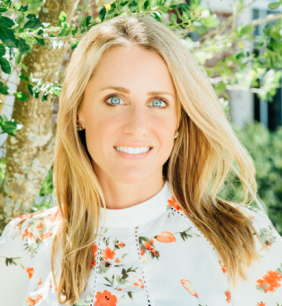
About the host
Ashley Ryneska is the Vice President of Marketing for the YMCA of Greater St. Petersburg and a founding Insight Board member at the St. Petersburg Group. Ashley believes meaningful conversations can serve as the gateway to resolution, freedom, and advancement for our city. Her passion for storytelling has been internationally recognized with multiple media accolades.



